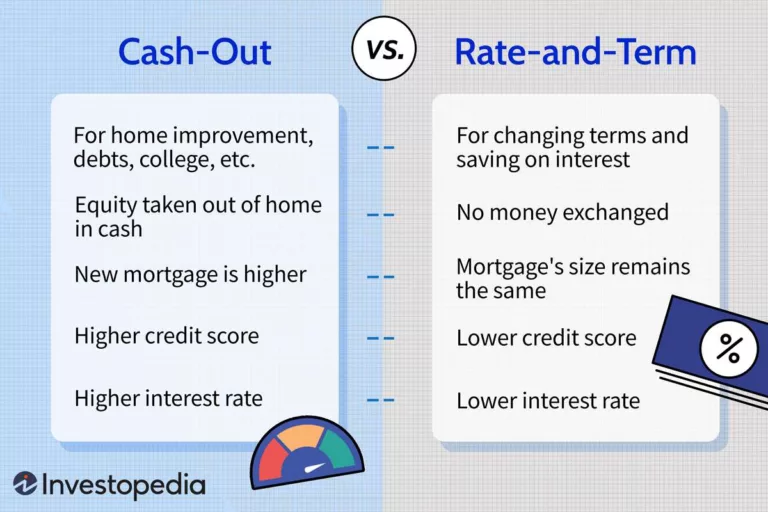Can I Port My Mortgage? Discover the Power of Mortgage Portability
Yes, you can port your mortgage to a new property within the initial two sentences. Porting your mortgage allows you to transfer your existing mortgage to a new property, typically without incurring penalties or higher interest rates.
This flexibility is particularly beneficial if you want to move or upgrade your home without starting a new mortgage term. By porting your mortgage, you can keep your current interest rate, loan term, and other terms and conditions. However, not all lenders offer mortgage portability, so it’s essential to check with your lender to see if this option is available to you.
We will discuss how mortgage porting works, its benefits and drawbacks, and what to consider before making a decision.

Credit: www.ratespy.com
What Is Mortgage Portability?
When it comes to mortgages, many homeowners may find themselves wondering if they can take their existing mortgage with them when buying a new property. This is where mortgage portability comes into play. In simple terms, mortgage portability is the ability to transfer your existing mortgage from one property to another without incurring penalties or additional fees. It offers flexibility and convenience to homeowners looking to move to a new home without the hassle of refinancing their mortgage.
Definition Of Mortgage Portability
Mortgage portability is essentially a feature offered by some lenders that allows homeowners to transfer their existing mortgage to a new property. Instead of going through the process of refinancing, which can be time-consuming and costly, mortgage portability allows borrowers to avoid breaking their existing mortgage contract and creating a new one.
Benefits Of Mortgage Portability
Mortgage portability offers several benefits to homeowners. Here are some of the key advantages:
- 1. Flexibility: Mortgage portability provides homeowners with the flexibility to move to a new property without the need to go through the process of finding a new mortgage or refinancing their existing one.
- 2. Cost Savings: By avoiding refinancing fees and penalties, mortgage portability can help homeowners save money. It eliminates the need to pay for new mortgage application fees, legal fees, and other associated costs.
- 3. Rate Protection: When you transfer your mortgage to a new property, you can often keep your existing interest rate. This can be beneficial if interest rates have increased since you first obtained your mortgage.
- 4. Time-Saving: Mortgage portability can save homeowners valuable time. Instead of going through the lengthy process of refinancing, you can seamlessly transfer your mortgage to your new property, allowing for a smoother homebuying experience.
Overall, mortgage portability is a convenient option for homeowners who are looking to move to a new property without the hassle and costs associated with refinancing. It offers flexibility, cost savings, rate protection, and time-saving benefits. If you’re considering buying a new home, it’s worth discussing mortgage portability with your lender to see if it’s an option that could work for you.
Process Of Porting Your Mortgage
The process of porting your mortgage involves transferring your existing mortgage from one property to another when you move. This can be a convenient option if you’re happy with your current mortgage terms and want to avoid paying penalties for breaking your mortgage early. Here’s a step-by-step guide outlining the process of porting your mortgage.
Eligibility Requirements
Before you can port your mortgage, there are certain eligibility requirements you need to meet:
- You must be eligible for a mortgage according to the lender’s current criteria.
- Your new property must meet the lender’s property criteria.
- The remaining term of your mortgage must be within the lender’s allowable range.
- The mortgage amount for the new property should be equal to or less than the mortgage amount on your existing property.
- Your current mortgage must be portable, which means it must have a portability clause in the contract.
Contacting Your Lender
Once you’ve determined that you meet the eligibility requirements, the next step is to contact your lender. Get in touch with your mortgage representative to discuss your intentions of porting your mortgage. They will provide you with all the necessary information and guide you through the process.
Completing The Porting Application
After discussing your plans with your lender, they will ask you to complete a porting application. This application will require you to provide information about your existing mortgage, new property, and any changes to your financial situation since obtaining your current mortgage.
To complete the porting application, you will typically need to gather the following documents:
- Proof of income, such as pay stubs or employment letter.
- Proof of down payment, such as bank statements or gift letter.
- Property appraisal or evaluation report for your new property.
- Copy of the purchase and sale agreement for the new property.
- Any other documents or forms requested by your lender.
Once you’ve gathered all the required documents, submit the porting application to your lender along with the necessary paperwork. Your lender will then assess your application and inform you of the outcome.
Porting your mortgage can be a seamless process if you meet the eligibility requirements and follow the necessary steps. By understanding the process and requirements, you can take advantage of this option when you decide to move to a new property.
Pros And Cons Of Mortgage Portability
Considering mortgage portability as an option when moving to a new home? It’s essential to weigh the advantages and disadvantages before making your decision. By understanding the pros and cons of mortgage portability, you’ll be better informed about whether it is the right choice for you.
Advantages Of Mortgage Portability
- No Prepayment Penalties: One major advantage of mortgage portability is that you can avoid prepayment penalties. If your mortgage has a penalty for paying it off early, porting your mortgage to a new property can allow you to avoid incurring these additional costs.
- Lower Interest Rates: By porting your mortgage, you may have the opportunity to keep your existing lower interest rate. This can be particularly beneficial if your mortgage was secured at a favorable rate and current market interest rates have risen.
- Simplified Process: Mortgage portability offers a streamlined process. You won’t need to reapply for a new mortgage, potentially saving you time, paperwork, and associated fees.
- Savings on Closing Costs: Porting your mortgage can help you save on some closing costs. While there may still be fees associated with transferring your mortgage, they are generally lower compared to obtaining a completely new mortgage.
- Retaining the Mortgage Terms: Another advantage of mortgage portability is that you can maintain the terms and conditions of your existing mortgage. This can be especially valuable if you have a fixed-rate mortgage with favorable terms that are no longer available in the current market.
Disadvantages Of Mortgage Portability
- Transferability Limits: One potential drawback of mortgage portability is that not all mortgages are transferable. Some mortgage lenders may not offer the option of porting your mortgage, limiting your choices.
- Restricted Options: When you choose to port your mortgage, you may be limited to the available properties within your lender’s approved list. This can restrict your options and potential for finding the right home that meets your needs.
- Porting Fees: While porting your mortgage can save on some closing costs, there may still be fees associated with the process. These fees can vary between lenders, so it’s important to understand the potential costs before deciding to port your mortgage.
- Mortgage Qualification: Even with mortgage portability, you’ll still need to meet the lender’s qualification requirements. If your financial situation has changed since your original mortgage approval, you may need to requalify, potentially affecting your ability to port the mortgage.
- Missed Opportunities: Lastly, by choosing mortgage portability, you may miss out on the opportunity to shop around for better mortgage terms or rates. It’s crucial to consider whether the benefits of portability outweigh the potential benefits of seeking a new mortgage.

Credit: www.amazon.com
Factors To Consider Before Porting Your Mortgage
Porting your mortgage can be a convenient option when moving to a new property, but it’s important to consider several factors before making a decision. By carefully evaluating these aspects, you can ensure that porting your mortgage is the right choice for your financial situation. Let’s discuss the key factors to consider.
Interest Rate Comparison
Before you decide to port your mortgage, it’s crucial to compare the interest rates between your existing mortgage and the rates available for new mortgages. This will help you determine whether you’ll be financially better off by porting your mortgage.
Start by reaching out to your current lender and inquire about the potential interest rate they can offer you for the new property. Then, research other lenders in the market and gather quotes from them as well. By comparing these rates, you can determine whether porting your mortgage will save you money in the long run.
Costs And Fees
Porting your mortgage can also involve various costs and fees. It’s essential to understand and evaluate these expenses before deciding to move forward.
Here are some costs and fees you may encounter:
- Mortgage Discharge Fee: Some lenders charge a fee for discharging your existing mortgage.
- Portable Administration Fee: A fee may be applicable for transferring your mortgage to a new property.
- Legal Fees: Hiring a lawyer to handle the legal aspects of the mortgage porting process.
- Mortgage Penalties: If you’re breaking your mortgage contract, penalties may apply.
Considering these costs and fees is essential to determine whether porting your mortgage aligns with your financial goals.
Future Home Ownership Plans
Your future plans regarding home ownership play a significant role in deciding whether to port your mortgage. If you anticipate moving again in the near future or if you expect changes in your financial circumstances, it may be better to explore other options.
However, if you plan to stay in your new property for an extended period, porting your mortgage can provide stability and potentially save you money on penalty fees or higher interest rates. Make sure to assess your long-term home ownership plans and weigh them against the benefits and costs of porting your mortgage.
Alternatives To Mortgage Portability
Mortgage portability not an option? Explore alternatives for transferring your home loan to a new property seamlessly, without the need to start a fresh mortgage application. Learn about other options that can help you in this process.
Refinancing Options
If mortgage portability is not an option for you, there are several alternatives that you can consider. One of these alternatives is refinancing your mortgage. Refinancing involves replacing your current mortgage with a new one, typically at a lower interest rate. This can help you save money on your monthly payments and potentially reduce the overall cost of your loan. Refinancing your mortgage can offer several benefits. With a lower interest rate, you may be able to lower your monthly payments, freeing up more money for other expenses. Additionally, refinancing can enable you to switch from an adjustable-rate mortgage to a fixed-rate mortgage, providing stability and peace of mind in knowing that your interest rate will remain the same over the life of the loan. Another advantage of refinancing is the opportunity to tap into your home’s equity. If you’ve built up equity in your property, you may be able to access it through a cash-out refinance. This means that you can borrow against the equity in your home and use the funds for other purposes such as home improvements, debt consolidation, or education expenses. When considering refinancing, it’s essential to shop around and compare offers from different lenders. Look for a mortgage with favorable terms and fees that fit your financial situation. Keep in mind that refinancing typically involves closing costs, so it’s crucial to calculate whether the potential savings justify these expenses.Selling And Repurchasing
Another alternative to mortgage portability is selling your current home and repurchasing another property. This option may be suitable if your current mortgage terms are not favorable, or if you’re looking for a significant change in location or property type. To execute this alternative, you would sell your current home and use the proceeds from the sale to pay off your existing mortgage. With the remaining funds, you can then use them as a down payment on a new home and obtain a new mortgage. While selling and repurchasing can be a viable option, it’s essential to consider the costs involved. Selling a property typically involves real estate agent fees, closing costs, and potentially capital gains tax if your property has appreciated in value. On the other hand, when purchasing a new property, you will incur expenses such as closing costs, property inspections, and moving costs. Before deciding to sell and repurchase, evaluate your financial situation and determine whether the potential benefits outweigh the associated costs. Additionally, consider factors such as the current housing market conditions and the availability of desirable properties in your desired location. Remember to consult with a mortgage professional or financial advisor to discuss your specific circumstances and explore the best alternative to mortgage portability for your needs.
Credit: www.forbes.com
Frequently Asked Questions For Can I Port My Mortgage
Is Porting A Mortgage Allowed?
Yes, it is generally allowed to port a mortgage.
Is It Possible To Port A Mortgage?
Yes, it is possible to port a mortgage.
Is There A Such Thing As Porting A Mortgage?
Yes, it is possible to port a mortgage. Porting a mortgage means transferring it to a new property without having to incur penalties or extra fees. It prevents the hassle of refinancing and allows you to keep the existing interest rate and terms.
How Do You Find Out If I Can Port My Mortgage?
To find out if you can port your mortgage, reach out to your mortgage lender or financial institution. They will provide you with the necessary information and guidance.
Conclusion
Porting your mortgage can be a beneficial option for homeowners looking to save money and take advantage of better interest rates or terms. By transferring your existing mortgage to a new property, you can avoid penalties and fees, streamline the process, and potentially secure a more favorable deal.
However, it’s important to research and compare all available options to make an informed decision that aligns with your financial goals. Don’t hesitate to consult with a mortgage professional for personalized guidance.




